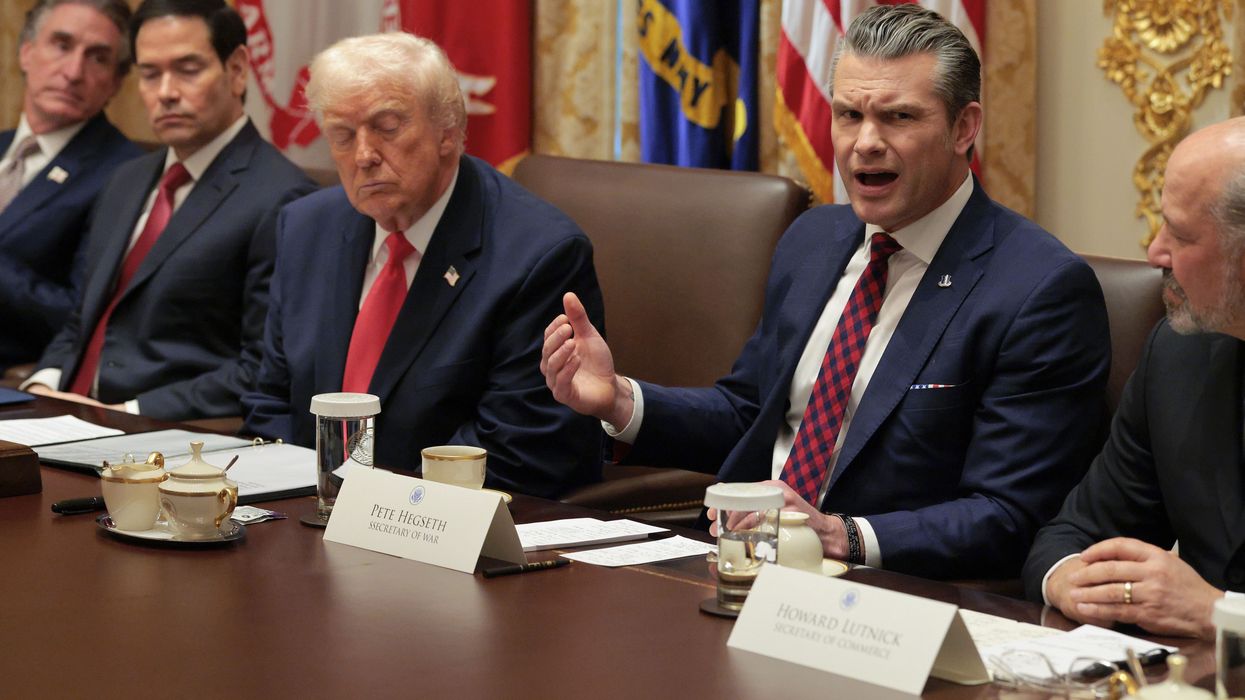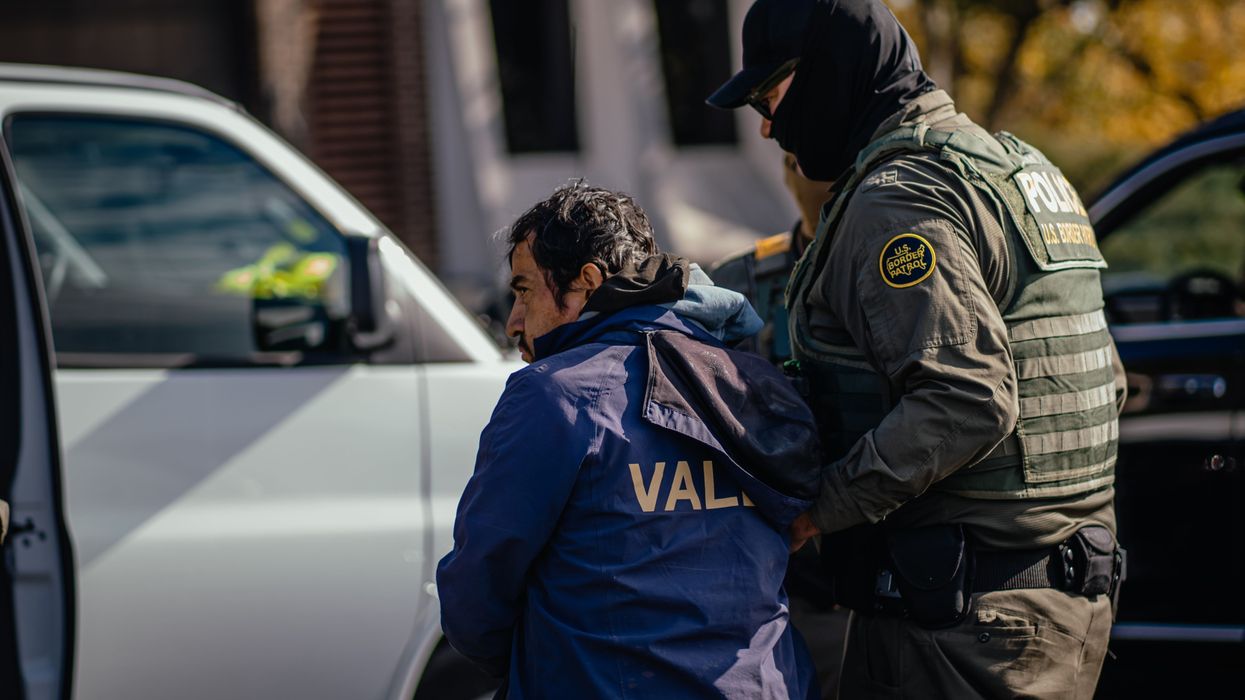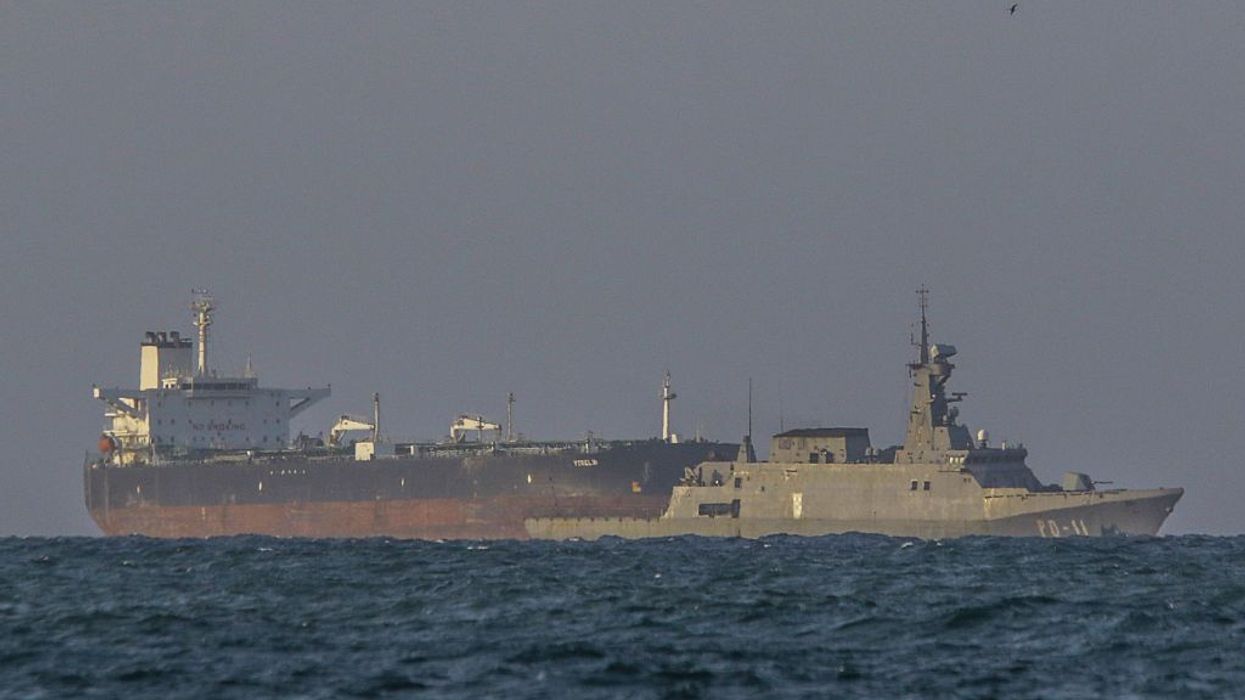December, 15 2008, 02:06pm EDT

Sri Lanka: Tamil Tigers Abuse Civilians in Stronghold
Forced Recruitment, Restrictions on Movement Put Lives at Risk
NEW YORK
Sri Lanka's separatist Tamil Tigers are subjecting ethnic Tamils in their northern stronghold, the Vanni, to forced recruitment, abusive forced labor, and restrictions on movement that place their lives at risk, Human Rights Watch said in a report released today.
The 17-page report, "Trapped and Mistreated: LTTE Abuses against Civilians in the Vanni," details how the Liberation Tigers of Tamil Eelam (LTTE), which have been fighting for an independent Tamil state for 25 years, are brutally abusing the Tamil population in areas under their control.
"The LTTE claims to be fighting for the Tamil people, but it is responsible for much of the suffering of civilians in the Vanni," said Brad Adams, Asia director for Human Rights Watch. "As the LTTE loses ground to advancing government forces, their treatment of the very people they say they are fighting for is getting worse."
In the face of an ongoing government military offensive, the LTTE has increased the pressure on the civilian population under its control. Having long used a coercive pass system to prevent civilians from leaving areas it controls, the LTTE has now completely prohibited movement out of the Vanni, except for some medical emergencies. By refusing to allow displaced persons to leave for government-held territory, the group has severely restricted their access to essential humanitarian relief. Only about a thousand people have managed to flee the conflict zone since March 2008.
"By refusing to allow people their basic rights to freedom of movement, the LTTE has trapped hundreds of thousands of civilians in a dangerous war zone," said Adams.
The LTTE has a long history of forced recruitment. There has been a dramatic increase in the practice of compelling young men and women, including children, to join their forces. The group has recently gone beyond its long-standing "one person per family" forced recruitment policy in the territory it controls and now sometimes requires two or more family members to join its ranks.
"Trapped in the LTTE's iron fist, ordinary Tamils are forcibly recruited as fighters and forced to engage in dangerous labor near the front lines," said Adams.
While increased international pressure and other factors had led to a decrease in its recruitment of children, recent reports indicate that the group has stepped up child recruitment in the Vanni. LTTE cadres have urged 14- to 18-year-olds at schools to join. The group often sends 17-year-olds for military training, apparently calculating that by the time such cases are reported to protection agencies, the youths will have turned 18 and no longer be considered child soldiers.
"Last year they were taking the people born in 1990 - now those born in 1991," a humanitarian official from the Vanni told Human Rights Watch. "They look at the family identity cards and take the young ones. If people of military age go into hiding, they will take younger children or the father, until they get the boys or girls they want."
During the past 25 years, the LTTE has killed large numbers of civilians, committed political assassinations in Sri Lanka and abroad, and carried out suicide bombings. It has systematically eliminated most political opposition within the minority Tamil community and is responsible for killing many journalists and members of rival organizations. In the areas under its control, the LTTE has ruled through fear, denying basic freedoms of expression, association, assembly, and movement.
In "Trapped and Mistreated," Human Rights Watch calls upon the LTTE to:
- Stop preventing civilians from leaving areas under its control; respect the right to freedom of movement of civilians, including the right of civilians to move to government-controlled territory for safety;
- Stop all forced recruitment into the LTTE; end all abductions and coercion;
- End all recruitment of children under the age of 18; cease the use of children in military operations; release all child combatants currently in its ranks, as well as all persons who were recruited when children but are now over the age of 18;
- Stop all abusive or unpaid forced labor, including labor it characterizes as "voluntary"; cease demanding that all families provide labor to the LTTE; stop forcing civilians to engage in labor directly related to the conduct of military operations, such as constructing trenches and bunkers;
- Provide humanitarian agencies and UN agencies safe and unhindered access to areas under the LTTE's control, and guarantee the security of all humanitarian and UN workers, including Vanni residents working as humanitarian or UN staff.
Human Rights Watch is one of the world's leading independent organizations dedicated to defending and protecting human rights. By focusing international attention where human rights are violated, we give voice to the oppressed and hold oppressors accountable for their crimes. Our rigorous, objective investigations and strategic, targeted advocacy build intense pressure for action and raise the cost of human rights abuse. For 30 years, Human Rights Watch has worked tenaciously to lay the legal and moral groundwork for deep-rooted change and has fought to bring greater justice and security to people around the world.
LATEST NEWS
Pentagon Weighed Sending Boat Strike Survivors to Salvadoran Prison to Avoid Defending Bombings in Court
One former Navy lawyer said the Trump administration "might not want to get into the messy issues involving detention and habeas corpus lawsuits.”
Dec 10, 2025
Pentagon officials asked about sending survivors of US boat strikes in the Caribbean Sea and Pacific Ocean to a notorious maximum security prison in El Salvador in a bid to keep them out of American courts—where the Trump administration's high seas extrajudicial killing spree would be subject to legal scrutiny.
New details published Tuesday by the New York Times revealed that attorneys at the US Department of Defense inquired about whether two survivors of an October 16 strike on a boat allegedly smuggling drugs in the southern Caribbean could be sent to El Salvador’s Terrorism Confinement Center (CECOT), where the Trump administration has shipped ihundreds of mostly Venezuelan victims of its mass deportation campaign.
The prison—the centerpiece of right-wing Salvadoran President Nayib Bukele’s war on crime—has been plagued by allegations of torture and other abuse.
One Trump administration official speaking on condition of anonymity told the Times that State Department lawyers were "stunned" by the query. The two boat strike survivors were ultimately returned to Colombia and Ecuador, their home countries.
Other unnamed officials told the newspaper that repatriations—either to survivors' home countries or to third nations—would become the administration's default plan for dealing with anyone who lived through the US attacks.
The goal, the officials said, was to avoid trying boat strike survivors in US courts, where the discovery process would compel the Trump administration—which has offered no concrete evidence to support its claims that the targeted vessels were carrying drugs—to provide legal justification for attacks that experts say are illegal.
The Pentagon's inquiry followed a September 2 "double-tap" strike on a vessel carrying 11 passengers. Two men survived the initial bombing but were killed in a second strike. Since then, at least 76 other people have been killed in 23 boat strikes reported by the Trump administration.
In addition to the two men who initially survived the September 2 strike and the two repatriated survivors of the October 16 attack, one other person who lived through a boat bombing was left adrift at sea and is presumed dead.
Some observers have noted similarities between the Trump administration's goal of keeping boat strike survivors out of US courtrooms and War on Terror policies and practices—first implemented during the George W. Bush administration—such as extraordinary rendition, the use of Central Intelligence Agency "black sites," and imprisonment of terrorism suspects at Guantánamo Bay in Cuba—designed to circumvent the law.
While the Trump administration previously sent migrants captured during its crackdown to Guantánamo, sending boat strike survivors to the lockup allow their lawyers to sue for habeas corpus, a right granted by the US Supreme Court in its 2008 Boumediene v. Bush decision.
The Trump administration has revived the term "unlawful enemy combatant"—which was used by the Bush administration to classify people caught up in the War on Terror in a way that skirts the law—to apply to boat strike survivors. The Pentagon has also called such survivors "distressed mariners," a term that normally applies to civilians stranded at sea.
“If we’re in a war, they should be using the term ‘shipwrecked survivors,’” Mark Nevitt, a former Navy lawyer who is now a law professor at Emory University, told the Times. “My theory is they might not want to get into the messy issues involving detention and habeas corpus lawsuits.”
Relatives of men killed in the strikes, as well as officials in Venezuela and Colombia, say that at least some of the victims were fishermen who were not linked to the illicit drug trade. One expert said last month that even in cases of vessels that were involved in drug trafficking, the bombings were "the equivalent of straight-up massacring 16-year-old drug dealers on US street corners.”
Even if the men targeted in the boat strikes were running drugs, "the appropriate response is to interdict the boats and arrest the occupants for prosecution," former Human Rights Watch executive director Kenneth Roth said Wednesday.
"The rules governing law enforcement prohibit lethal force except as a last resort to stop an imminent threat of death or serious bodily injury," he added, "which the boats do not present."
Keep ReadingShow Less
New DHS Database Suggests That Less Than 5% of Those Arrested by ICE Are the ‘Worst of the Worst’
The database contains just 9,738 total people, a tiny fraction of the more than 220,000 ICE data says the agency arrested between January 21 and October 15.
Dec 10, 2025
In response to criticism of its aggressive and often lawless "mass deportation" campaign—which has entailed sweeping raids by masked agents, the use of squalid detention centers rife with torture, overt racial profiling, and the near-total abrogation of due process—the Trump administration has often fallen back on a familiar refrain: that the immigrants it targets are "the worst of the worst" dangerous criminals.
Immigration data published throughout the second Trump administration has already undermined this claim. Last month, David J. Bier of the Cato Institute published new data showing that between October 1 and November 15, only 5% of those booked into ICE detention had violent criminal convictions, while 73% had no convictions at all. It mirrored previous data published by Cato in June, which showed that 65% arrested had no criminal convictions of any kind, while 93% had no violent convictions.
Justice Department data published last month, meanwhile, showed that of the at least 614 people snatched up in the Operation Midway Blitz crackdown in Chicago, just 16 had criminal records of any kind.
On Monday, the Department of Homeland Security published its own "Worst of the Worst" database seeking to reverse the narrative, but it seems to have done the opposite.
"DHS has launched WOW.DHS.GOV for Americans to see the criminal illegal aliens that we are arresting, what crimes they committed, and what communities we removed them from," read a post from the agency on social media.
The post leads to a website containing the names, photos, and nationalities of those arrested by ICE. It also lists alleged past criminal convictions. In many cases, the only documentation of the allegations, if any is provided at all, is a DHS press release rather than official court records.
"Under Secretary [Kristi] Noem's leadership, the hardworking men and women of DHS and ICE are fulfilling President Trump's promise and carrying out mass deportations—starting with the worst of the worst—including the illegal aliens you see here," a header on the website reads.
Among those listed are people who DHS says have been convicted of heinous crimes, ranging from attempted murder to child abduction to domestic battery.
But the database contains just 9,738 total people, a tiny fraction of the more than 220,000 ICE data says the agency arrested between January 21 and October 15.
"So DHS is implicitly admitting that less than 5% of the people it arrests are people they believe are 'the worst of the worst,'" said Aaron Reichlin-Melnick, a senior fellow at the American Immigration Council.
Moreover, even some of those listed among the "Worst of the Worst" have only nonviolent offenses to their name, like drug possession, shoplifting, or disorderly conduct.
Reichlin-Melnick also noted that while immigration law does not require a criminal conviction for a person to be removed, "it matters because the administration talks as if these cases are the majority."
"There are definitely bad people on there who deserve deportation, but plenty of others on the list have nothing worse than a misdemeanor," he said. “If the administration were to actually focus its resources on people who were serious public safety threats or fugitives, there would be less of an outcry. But data shows that the big focus has been on boosting numbers by going after people no previous administration, Republican or Democrat, prioritized.”
Keep ReadingShow Less
Trump Escalates in Venezuela With 'Illegal' US Seizure of Oil Tanker
“Millions of civilians will be at risk if the economy deteriorates and tensions rise," warned one anti-war group.
Dec 10, 2025
The US military on Wednesday seized an oil tanker off the coast of Venezuela in the latest act of aggression against a nation that President Donald Trump has been openly threatening for several weeks.
Bloomberg, which described the move as a "serious escalation" in tensions between the US and Venezuela, reported that the seizure of the tanker by US forces "may make it much harder for Venezuela to export its oil, as other shippers are now likely to be more reluctant to load its cargoes."
The seizure was described to Bloomberg by a Trump administration official as a "judicial enforcement action on a stateless vessel" that had been docked in Venezuela.
Shortly after the seizure occurred, Trump boasted about it during a meeting with business leaders at the White House, declaring that the tanker was the "largest one ever seized."
Trump: "It's been an interesting day from the standpoint of news. As you probably know, we've just seized a tanker on the coast of Venezuela. Largest one ever seized actually. And other things are happening." pic.twitter.com/wyOYMKCJTT
— Aaron Rupar (@atrupar) December 10, 2025
Just Foreign Policy, a progressive think tank and advocacy group, condemned the seizure of the tanker, describing it as an "illegal US move to take control of Venezuela's natural resources and strangle the economy, which is already struggling under indiscriminate US sanctions," and warning that "millions of civilians will be at risk if the economy deteriorates and tensions rise."
The seizure of the oil tanker is just one of many aggressive maneuvers that the Trump administration has been making around Venezuela.
Starting in September, the administration began a series of murders of people aboard boats in the Caribbean Sea off the coast of Venezuela and in the Pacific Ocean.
The Trump administration has claimed those targeted for extrajudicial killing are drug smugglers and accused Venezuelan President Nicolás Maduro of leading an international drug trafficking organization called the Cartel de los Soles, despite many experts saying that they have seen no evidence that such an organization formally exists.
Trump late last month further escalated tensions with Venezuela when he declared that airspace over the nation was “closed in its entirety,” even though he lacks any legal authority to enforce such a decree. Trump has also hinted that strikes against purported drug traffickers on Venezuelan soil would occur in the near future.
Keep ReadingShow Less
Most Popular


